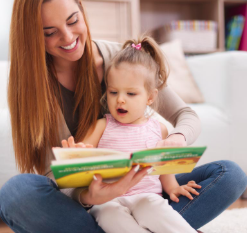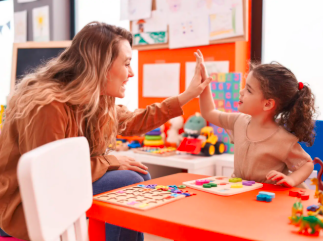Early childhood education plays a vital role in shaping how young children interact with others. More than just learning letters and numbers, high-quality early learning environments help children develop essential social abilities that lay the foundation for strong relationships throughout life.
Building Communication from the Start
In early education settings, children learn to express their thoughts, listen to others, and respond appropriately. Through daily interactions with teachers and peers, they begin to understand the value of clear communication. These early experiences help them build confidence when speaking and develop empathy by listening to different perspectives.
Learning Through Play and Group Activities
Play-based learning is central to many early childhood programs. Structured group play teaches children how to share, take turns, and resolve small conflicts—important skills that carry over into future academic and social settings. Whether building a block tower together or participating in a group story time, children learn the dynamics of cooperation and teamwork.
Developing Emotional Understanding
Another key aspect of early childhood education is helping children recognize and manage their emotions. Teachers guide students in identifying feelings like happiness, frustration, or sadness, and in choosing appropriate ways to express them. This emotional awareness helps children navigate social situations with greater ease.
Respecting Differences and Encouraging Inclusion
Early classrooms are often diverse, exposing children to peers with different backgrounds, abilities, and perspectives. This diversity helps young learners appreciate differences and practice inclusivity. These early lessons encourage respect, kindness, and open-mindedness—values that strengthen future communities.
The Role of Educators in Social Growth
Educators serve as role models, demonstrating positive social interactions and guiding children through challenges. By setting expectations for respectful behavior and providing gentle feedback, teachers support healthy social development in a nurturing environment.
Long-Term Benefits
Children who build strong social skills early tend to have better relationships, perform well in school, and adapt more easily to new situations. These benefits extend well beyond the classroom, helping them grow into well-rounded and confident individuals.
Conclusion
Early childhood education provides more than academic readiness—it offers a supportive environment where children build the social tools they need for life. By encouraging communication, emotional intelligence, cooperation, and empathy, early learning programs shape young learners into compassionate and socially capable individuals.














